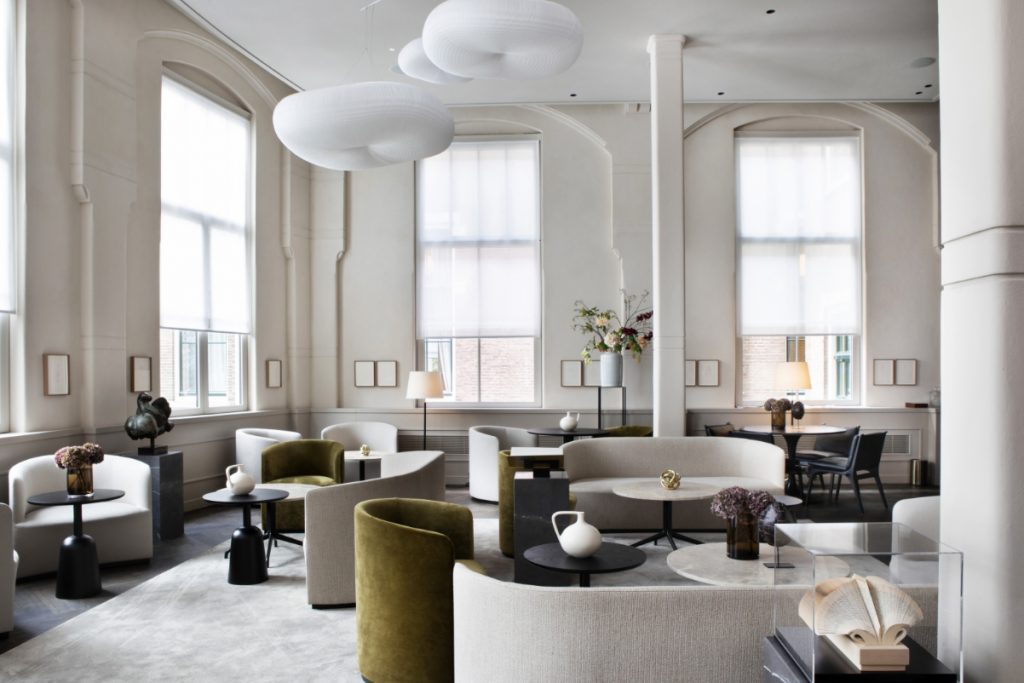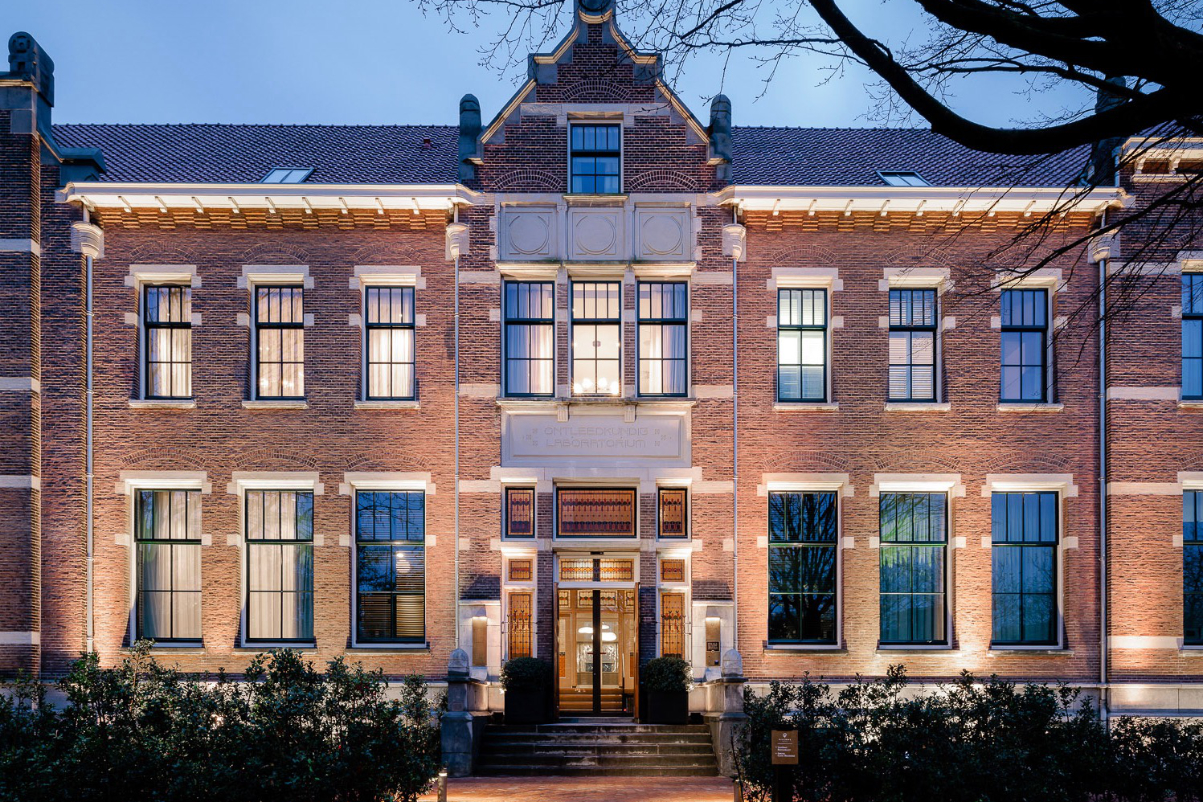Skift Take
It's no small feat for Loes Dingemans to grow a boutique hotel chain to six properties during a pandemic. But she may face high barriers to expanding the Pillows brand across Europe.
A five-year anniversary would be a big deal for any new boutique hotel brand. But for Pillows Hotels, a luxury boutique hotel chain with locations in the Netherlands and Belgium, hitting this five-year mark might mean even more, considering the brand launched just a few years before the pandemic.
“It’s been challenging to operate in an environment when demand was non-existent, but we’ve weathered the storm,” said Loes Dingemans, CEO of Pillows Hotels and managing director of International Hotel Management Group.
The boutique brand with a few hundred employees has just opened its sixth property in Europe, the 88-room Pillows Grand Boutique Hotel Maurits at the Park by the Oosterpark in Amsterdam.
“It’s an impressive monumental building that was given new life following a very delicate and time-consuming restoration process,” Dingemans said. “It’s the only five-star hotel opening in the center of Amsterdam this year, so all eyes are on us,” said Dingemans.
Monumental Buildings, Subtle Style
To stand out, Pillows has created a formula. First, the more historical the building, the better.
“All the buildings were selected because they have a history and something to tell,” Dingemans said.
Maurits at the Park, for instance, is located inside a former university built in 1908.
Next for the brand comes the design.
“The hotels are furnished as elegant residences and characterized by an understated luxury,” Dingemans said. “This includes the elegant interior, which we call ‘subdued chic,’ in monumental buildings.”
The look gives the properties an overall relaxed, sleek vibe — perhaps fitting for a hotel chain called Pillows.
On top of that, each property has a distinctive look, atmosphere, and personality, said Dingemans. At Maurits at the Park, you’ll find works from Pablo Picasso and Gustav Klimt (genuine artworks, from the owner’s private collection), along with ones by contemporary Dutch artists.
Another location, Charme Hotel Château De Raay in Limburg, Netherlands, is inside a 13th-century restored castle with a pond and herb garden.
Each property in the portfolio has unique staff uniforms and playlists of ambient music.
A thoughtful attention to food is another brandwide theme. A case in point is the restaurant at VanOost at Maurits at the Park. It emphasizes flavors from all over the world, made from local products, with tasting menus and an open kitchen concept. So far, the brand’s restaurants have gotten nods from Michelin and Gault&Millau guides for their offerings.
Check-in also goes for a modern approach, despite the historical backdrops of the buildings.
“Our check-in process isn’t done at the front desk, but at The Living, our special lounge accessible only to hotel guests — the process is relaxed, accompanied by a welcome drink and a quick but informative chat with our guest relations team,” said Dingemans.

Executives at Pillow Hotels hope that thanks to the company’s small size, it can move faster than its rival firms to make a land grab in key, high-margin locations and segments.
Amerborgh, an investment company, owns Pillows Hotels. The entrepreneur Alex Mulder — who leveraged a temp employment agency into Amerborgh’s multi-sector investment portfolio — and his partner Suzan Kleijn, are deeply invested in Pillows. Mulder’s and Kleijn’s experiences in the hotel and travel industries have greatly influenced the offerings and amenities at Pillows, including the implementation of clockless dining and the incorporation of elements from their private art collection.
Mulder brought Dingemans over from an executive role at the temp agency Unique, which Mulder created, to help lead strategy at Amerborgh’s hospitality offerings — namely, a handful of Sandton Hotels that Amerborgh acquired in 2016 and that originally began as a brand in 2006, as Misset Horeca has reported.
In 2017, Dingemans helped to lead the opening of the first Pillows-branded hotel in Amsterdam. Her team decided to sell two Sandton properties because they couldn’t be cost-effectively upgraded to the new brand. The team converted the other Sandtons to the Pillows brand while also acquiring new properties.
It remains an open question whether the Pillows formula will work outside Belgium and the Netherlands. Can the business avoid getting over-extended in a choppy economy this year? Pan-European growth will present a variety of regulatory, marketing, and capital quirks and challenges.
Neither Amerborgh nor Dingemans has experience scaling up hospitality brands outside the Benelux.
Yet because it’s broadly speaking a family-owned business, Dingemans thinks her team will be more agile and move more quickly to reach their goals than some of its similarly sized competitors.
Yet credit is due for Pillows having navigated through the stormy waters of the pandemic. The industry will keep tabs on the brand as the boutique urban hotel brand relies on its mix of “understated luxury” design in historical buildings to hit its next big milestones. Perhaps it will have more than a dozen hotels by its tenth anniversary.
Daily Lodging Report
Essential industry news for hospitality and lodging executives in North America and Asia-Pacific. Delivered daily to your inbox.
Have a confidential tip for Skift? Get in touch
Tags: belgium, boutique hotels, future of lodging, hotel brands, hotel development, independent hotels, luxury, luxury hotels, netherlands, the netherlands
Photo credit: Exterior of the Pillows Grand Boutique Hotel Maurits at the Park. Source: Pillows Hotels.
